Parish communities from across the Diocese of Sale have been participating in a pilot program since March 2022, which has enabled participants to attend ‘Shining A Light’ workshops across the six regions of the diocese. Led by Sr Nicole Rotaru RSM and auspiced by Catholic Social Services Victoria (CSSV), each workshop enabled key parish community participants to be better informed and equipped to respond to domestic and family violence.
To date, seven workshops have been held across the diocese since March, including Sale, Traralgon, Bairnsdale, Warragul, Wonthaggi and twice in Berwick. The most recent workshop was held on 19 July at St Michael’s Catholic Parish in Berwick with 15 participants. They included parish staff, pastoral associates, parishioners and members of the Legion of Mary. The intention of the program is to develop capacity for an effective whole of Church response to the prevention of violence against women and children. The pilot program was funded through a grant from the Victorian Multicultural Commission.
‘Both CSSV and Bishop Greg Bennet are highly concerned about the impact of domestic and family violence, so that’s why these workshops have been running across every region of the diocese.’
Sr Nicole Rotaru RSM
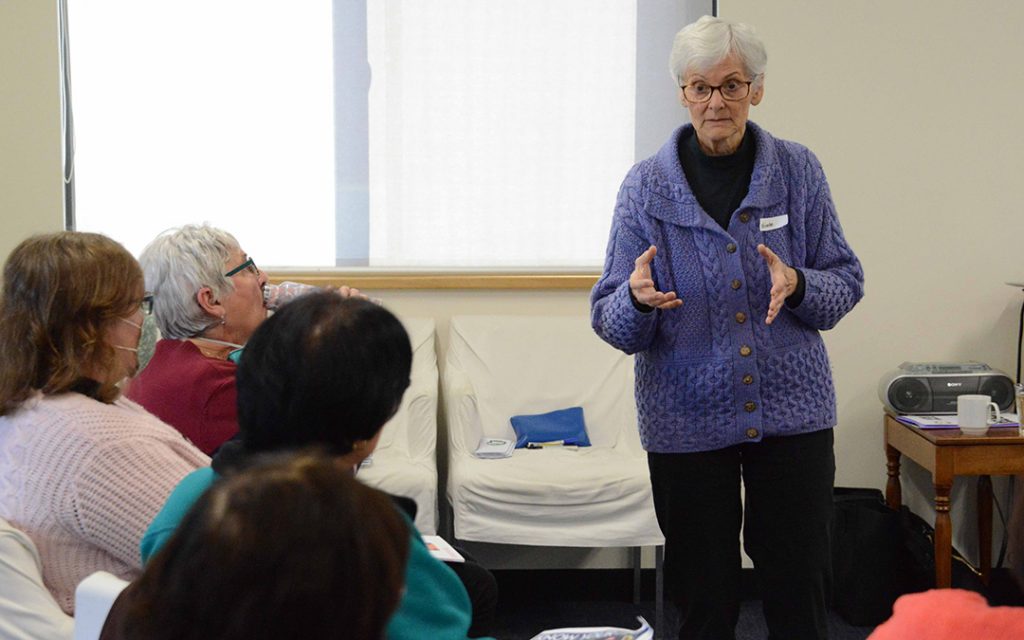
With the blessing of Bishop Greg, who wrote a letter to every parish in the diocese at the start of the program, encouraging priests and key parishioners to attend, more than 100 people have taken part in the workshops. The pilot program is also a direct response to Recommendation 165 of the Royal Commission into Family Violence, which states:
Faith leaders and communities establish processes for examining the ways in which they currently respond to family violence in their communities and whether any of their practices operate as deterrents to the prevention or reporting of, or recovery from, family violence or are used by perpetrators to excuse or condone abusive behaviour.
In addressing workshop participants, Sr Nicole said, ‘Addressing domestic and family violence is important to us because we are all equally created in the image and likeness of God. In our faith tradition, we follow the teachings of Jesus, which is around justice and truth. We are called to be witnesses of light and love in the world.
‘You all have key roles in your faith community, and as a faith community there is always an opportunity where we can learn something new for transformation, and for change of attitude.’
Careful Conversations – what are they and how can we have them?
Each of the workshops has aimed to inform and equip people—who are often ‘first responders’—to better recognise the signs of domestic and family violence, and to respond appropriately. A role play depicting a ‘careful conversation’ was demonstrated, with participants given the opportunity to unpack the components of engaging in this kind of discussion with someone who might be impacted by domestic and family violence.
A careful conversation involves:
- listening to the person who may be impacted by domestic and family violence, without judgement.
- asking open-ended questions as this enables the person to share, should they wish.
- If the person wishes to seek support:
- give the person phone numbers that provide expert guidance: Respect 1800 and Safe Steps
- offer the use of your phone (in case they fear their own phone is being monitored or traced)
- or offer to meet in a safe, open, and neutral place, such as the parish foyer or office.
Breaking Open Domestic and Family Violence
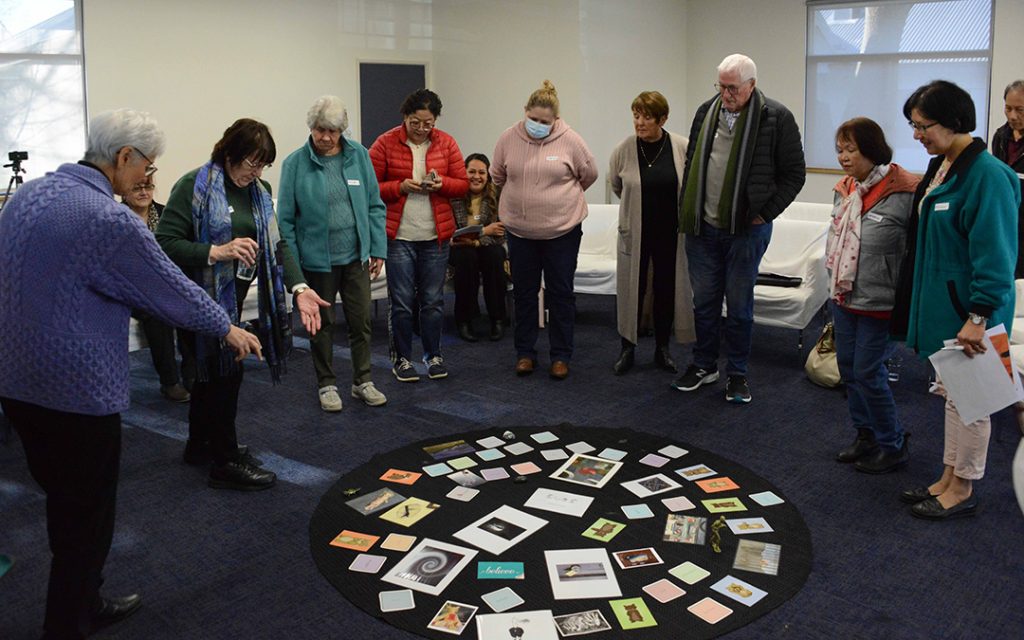
In the workshop, participants engaged in an activity depicting what people in an environment of domestic and violence might experience. Through discussion, participants came to see that power and control are the motivations of the person abusing. The abuser causes another person to fear, feel threatened and unsafe. The abuse can take on a number of forms including physical, sexual, spiritual, financial, social, psychological, technology-based, verbal, and emotional.
Participants discussed and shared examples of the various behaviours that can be used to exert power and control, which include intimidation, isolation, emotional abuse, isolation, minimising, denying, blaming, and male privilege.
Participants looked at some of the major outcomes of The Royal Commission in Family Violence VIC 2015. Gender inequality is the key driver of domestic and family violence, and includes rigid gender roles, men’s control of decision making, male-peer relationships that emphasise violence against women and which condone violence against women.
‘In our local parish communities, it’s good for us to look at male-female dominated control of decision making and resources. What’s happening in our parish about that?’ questioned Sr Nicole. ‘Be aware of fixed ideas and harmful expressions of masculinity and femininity. How are we speaking and categorising things in our own language? Do we use language such as men don’t cry, men do this, men don’t do that, women do this, women don’t do that. This rigid, categorising talk doesn’t help us.’
All were encouraged to examine their attitudes to one another and were encouraged to call out disrespect to women and men when they see it.
‘We are society, we all play a part,’ said Sr Nicole. ‘We all have responsibility here. We are all part of colluding with this through our action, and sometimes through our inaction. So, there is some level of responsibility for each of us and for calling it out when you see it.’
Resources
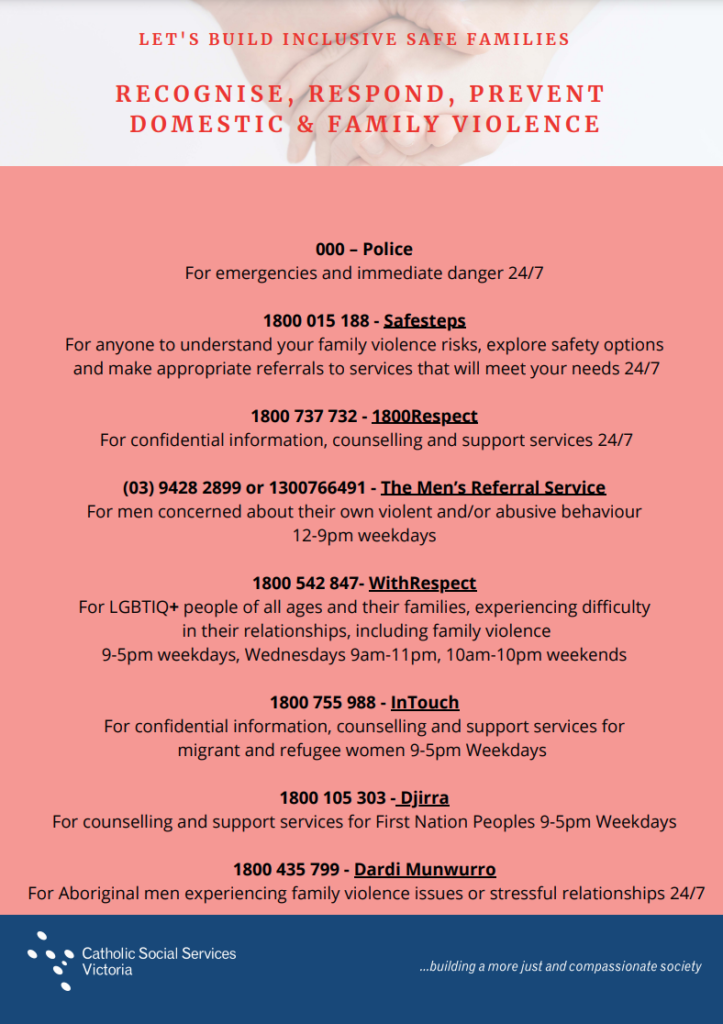
We know that violence thrives in silence. If we know that violence is happening, we need to be able to know the appropriate way to respond. It’s also about knowing what local resources and referrals are available, which can be passed on safely and appropriately.
Parish communities are encouraged to display this poster and numbers from the poster in their weekly bulletins, or to share information each week from this Know your A-Z poster.
To watch a video role-play of a careful conversation, click here.
Videos
Let’s Change the Story illustrates the drivers of violence against women and what works to prevent it based on the national framework.
The Man Box as part of the Men’s Project by Jesuit Social Services asked 1,000 Australian men aged 18-30 about the pressures to be a ‘real man’.
Series of workshops held across Diocese of Sale
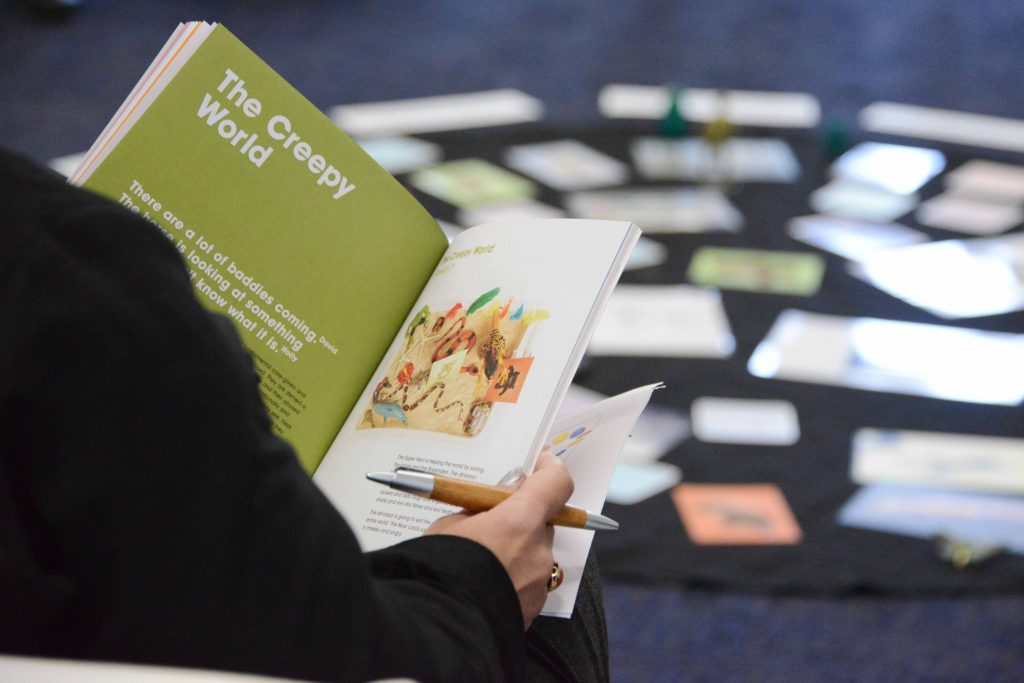
Seven workshops have now been held across the Diocese of Sale. Further information about these workshops can be accessed below.
Workshop 1: Berwick, 23 March 2022
Workshops 2 & 3: Sale and Bairnsdale, 27 & 28 May
Workshop 4: Warragul, 4 June 2022
Workshop 5: Wonthaggi, 25 June 2022
Workshop 6: Traralgon, 9 July 2022
Workshop 7: Berwick, 19 July 2022 [this article]
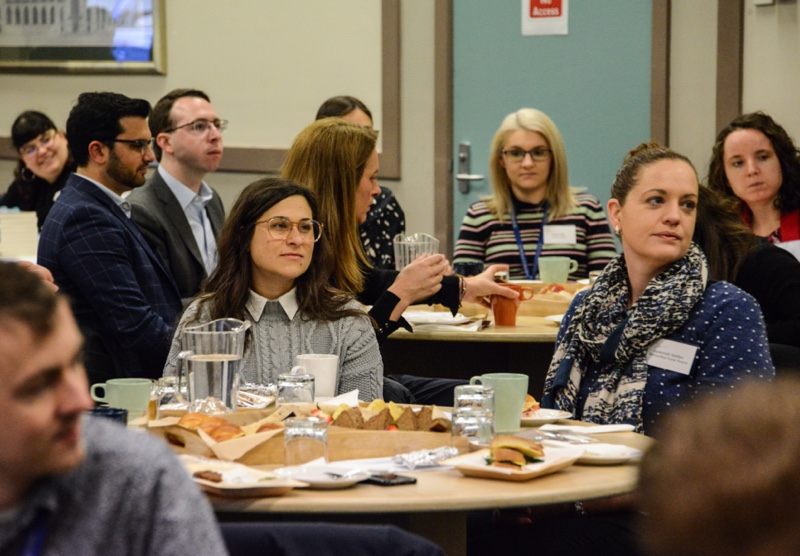
Join our mailing list
Keep up to date with latest news, information and upcoming events.
We respect your privacy, as outlined in our privacy policy.